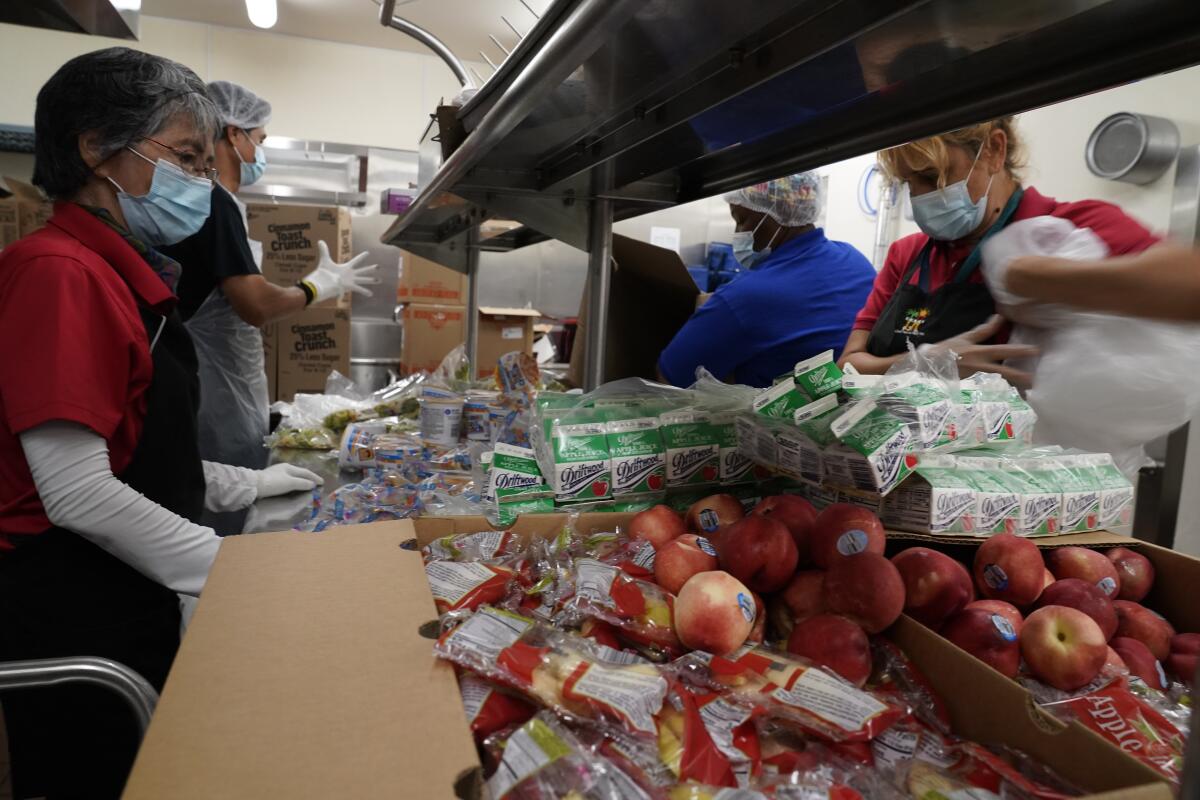Proposal for student cards to cover free meals fails in California Legislature

SACRAMENTO â A bill that would have granted electronic benefit transfer cards to low-income schoolchildren to cover meals when class is not in session quietly failed last week in the state Legislature.
Food banks across California promoted the legislation, noting the COVID-19 pandemicâs impact on child hunger, as school closures made food insecurity worse for families that rely on schools for free meals.
The legislation, Senate Bill 364, by state Sen. Nancy Skinner (D-Berkeley) would have created a state-funded food benefits program for income-eligible K-12 children to be used when schools are closed during the summer.
The bill was modeled after a federal policy enacted during the pandemic that loaded cash onto EBT cards for eligible families with children to purchase food while classrooms were shuttered.
Under that program, headed by the Department of Agriculture, California issued nearly $1.4 billion in benefits to 3.7 million low-income kids. The amount of benefits varied, depending on how many school days were canceled, with a maximum allowance of $365.
Skinner aimed to make the program permanent in California.
âDespite the success of the program, there is no plan to continue it post-pandemic,â Skinner said in an analysis of SB 364. âThis is a model California could use to provide meals to children during times that school is out.
âHunger follows children home from school,â she added.
There was no registered opposition to SB 364, but on Thursday the bill did not survive the fast-paced Assembly Appropriations Committee, a gatekeeper panel that thins out proposals based on cost. The exact price tag of the bill was unknown, but a legislative analysis put annual ongoing costs âin the tens of millions to hundreds of millions of dollars.â
Skinner declined to comment on the failure of the bill.
While a number of school districts offer bagged meals for pick-up when class is out of session, some families do not have transportation or canât get off work at the right time to retrieve those meals, advocates say.
Prior to the pandemic, more than 15% of California households with children experienced food insecurity. That rate nearly doubled in the early months of the pandemic, when schools were closed, according to a report by the California Assn. of Food Banks, a sponsor of SB 364.
Lauren Lathan Reid, a spokesperson for the group, said it will continue to push for the policy. She praised Skinner and Gov. Gavin Newsom for passing legislation last year that made California the first state to offer free school meals to all K-12 students, regardless of income.
But the need surpasses the two free meals guaranteed at school, she said, including when classrooms are closed during emergencies like wildfires.
âWe arenât stopping here,â Lathan Reid said. âWe know that summer is the hungriest time of the year, and we know how to prevent it.â
More to Read
Sign up for Essential California
The most important California stories and recommendations in your inbox every morning.
You may occasionally receive promotional content from the Los Angeles Times.











